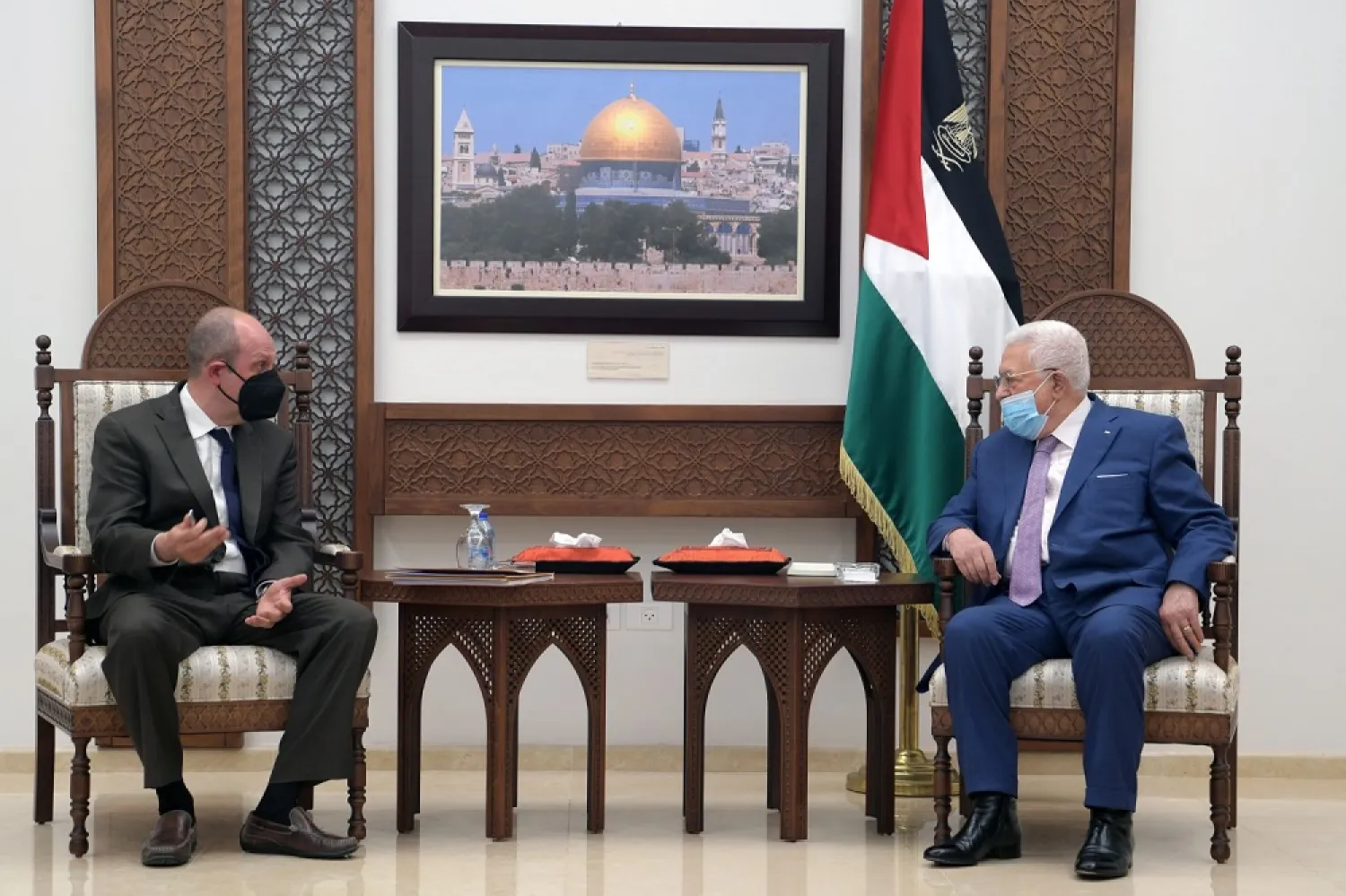Palestinian President Mahmoud Abbas called on the US administration to intervene to halt the Israeli aggression against Palestinians and kick off efforts aimed at reaching a political solution based on UN resolutions and international law.
Abbas discussed with the US envoy, Hady Amr, the ongoing Israeli attack on Gaza and the recent escalation in the West Bank.
Palestine is willing to work with the Quartet to achieve just and comprehensive peace that guarantees the Palestinian people’s inalienable rights to freedom and independence as determined by international law, asserted the president.
In turn, Amr emphasized the need to de-escalate the situation, reiterating that the US administration is committed to bringing about peace and providing equitable opportunities for Palestinians and Israelis alike to live in dignity, security and prosperity.
The envoy noted the importance of achieving the two-state solution.
Amr also met member of Fatah Central Committee and the head of the General Authority for Civil Affairs, Minister Hussein al-Sheikh, head of the General Intelligence Service Major General Majid Faraj, and presidential advisor, Majdi al-Khalidi.
The Palestinian officials called on the US administration to exert all efforts and pressure the Israeli government to end its aggression.
They warned that the continuation of the attack by the right-wing government and its settlers may kill or destroy any hope of reaching a comprehensive solution that guarantees an end to the occupation and establishment of an independent Palestinian state on the 1967 borders with East Jerusalem as its capital.
Amr had arrived in Ramallah from Tel Aviv, where he met senior Israeli officials, including Defense Minister Benny Gantz.
The United States is working to end the current escalation, along with Egypt, Qatar and the United Nations.
Meanwhile, UN Special Coordinator for the Middle East Peace Process, Tor Wennesland held extensive talks with Israel's National Security Adviser, Meir Ben Shabbat, and other senior Israeli officials in an effort to avoid a full-scale war.
Separately, Secretary-General of the “Islamic Jihad”, Ziyad al-Nakhalah, received a phone call from Qatari Foreign Minister Sheikh Mohammed Al Thani to discuss efforts to reach a ceasefire.
Israel is seeking a long-term ceasefire that guarantees the return of its soldiers and citizens detained by Hamas, and the latter wants to end the Israeli escalation throughout Palestinian territories.
In the West Bank, Fatah called on Palestinians to declare a general strike on Tuesday and confront Israeli forces.
Fatah’s Central Committee called for a general strike in the West Bank and Gaza Strip, in line with the statement of the Arab Higher Committee.
Fatah urged the world to confront the Israeli authorities’ attempts to “ignite a religious conflict” through evictions in Jerusalem.
There can be no security, peace or stability without having Jerusalem as the capital of an independent Palestinian state, it stressed.









